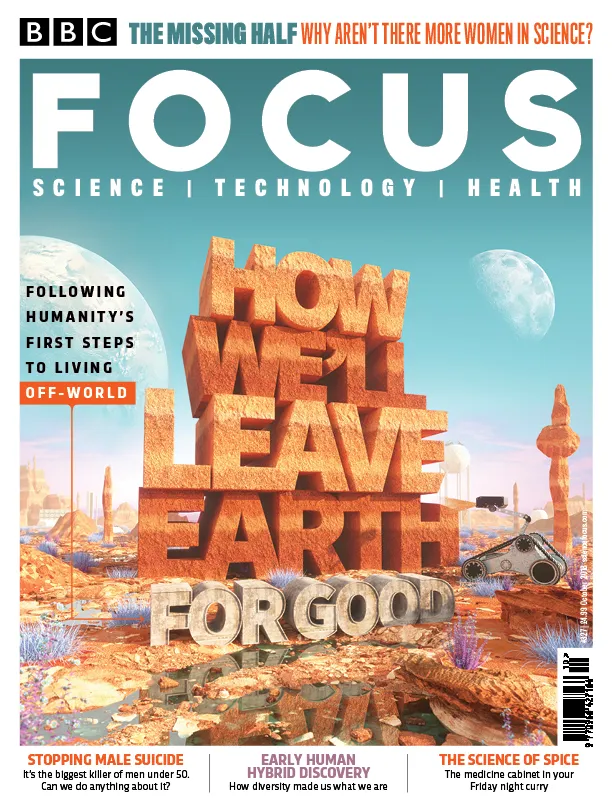Issue #326 ofBBC Focuson sale 19 September 2018
“When I first looked back at the Earth, standing on the Moon, I cried.” Those are the words of astronaut Alan Shepard, who in 1971 became the fifth person to walk on the Moon, 10 years after becoming the first American to travel into space. He’s one of the select few who’ve seen Earth as a globe from space – an experience that’s often described by astronauts as giving them a sudden awareness of the fragility of our planet. Psychologists have dubbed this ‘the overview effect’.
One day, we might all experience this feeling. As temperatures rise, populations grow and ecosystems strain under our influence, the Earth is looking increasingly fragile. Indeed, last year Prof Stephen Hawking warned that we only have 100 years left to find a new home planet.
It might sound like pie in the sky, but the idea of leaving Earth for good is one that scientists are taking seriously. From 3D-printed buildings to asteroid mining, and from space agriculture to food made from poo, a raft of new technologies will make it easier for our descendants to set up base elsewhere in the cosmos.
Meanwhile, recent experiments on the International Space Station are revealing more about how we’ll stay healthy on long-term missions, and how space travel affects the human reproductive system – something that’s crucial to understand if we’re ever going to go forth and procreate on another planet. Read our special report in the new issue of BBC Focus.

How we’ll leave Earth for good
If we want to build a new civilisation in space, we’re going to have to make maximum use of our species’ ability to adapt and innovate.
The missing half
Science still has something of a gender gap, with women hugely under-represented in some fields. We spoke to four female scientists to find out why that might be…
The science of spice
Curry’s not just ludicrously tasty – it’s also ludicrously good for you! We outline the surprising health benefits of a late-night chicken bhuna…
Stopping male suicide
Vastly more men kill themselves than women, and the gap’s getting bigger. But can virtual reality and machine learning shed new light on the problem?
Q&A
- Why do we make robots to look like humans?
- How free-range are free-range chickens?
- Could there be materials on other planets that we don't have on Earth?
Plus
Eye opener -Fabulous images from around the world.
Discoveries -This month’s biggest science news. PLUS: What are the causes of obesity?
Aleks Krotoski -How social media kills self-esteem.
Michael Mosley -Why vaping is better than smoking.
Innovations -The latest technology and gadget news.
Out there -Science stuff to enjoy this month: books, exhibitions, days out and more.
Crossword - Give your brain a workout.
My life scientific -Dr David Saltzberg, particle physicist and science consultant to The Big Bang Theory, talks Sheldon, physics jokes and quarks.
Don’t forget thatBBC Focusis also available on all major digital platforms. We have versions forAndroid,Kindle Fire and Kindle e-reader, as well as aniOS appfor the iPad and iPhone.
Subscribe to BBC Focus Magazine
Follow Science Focus onTwitter,Facebook,InstagramandFlipboard